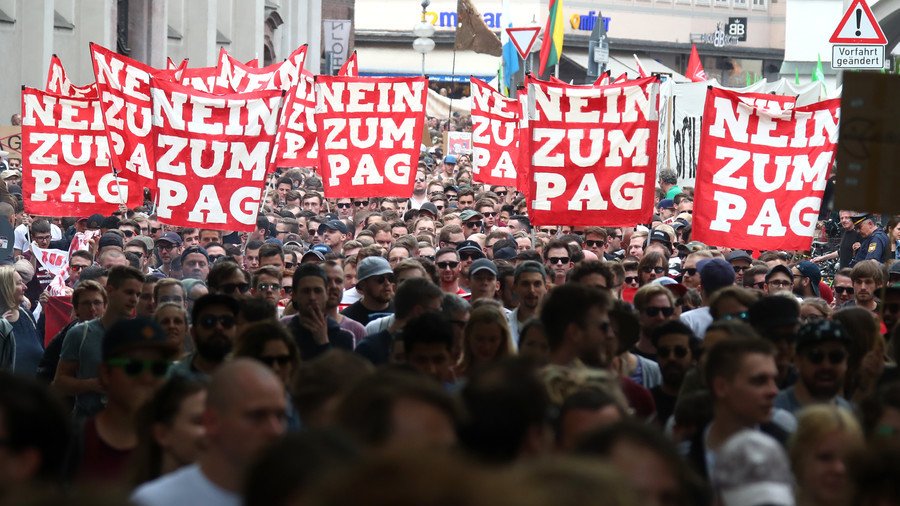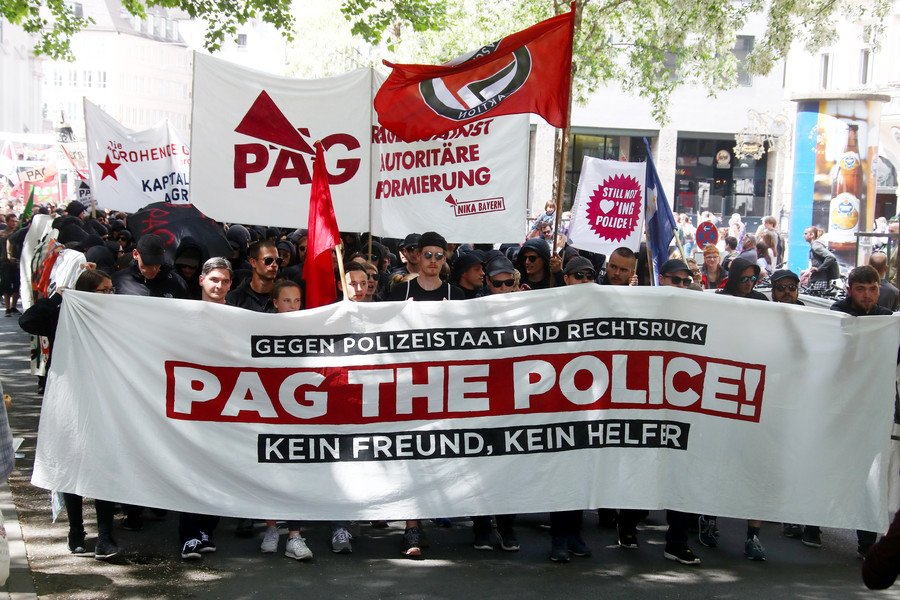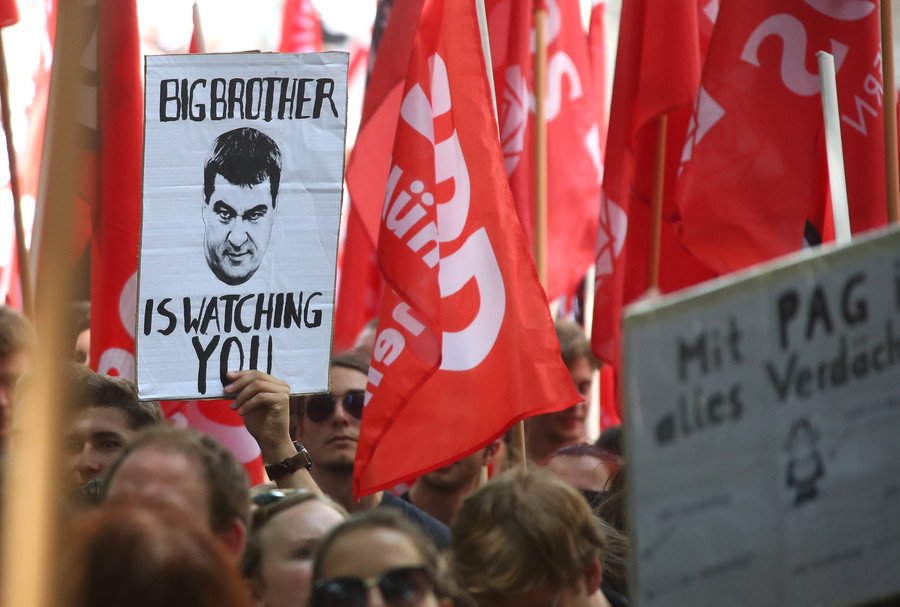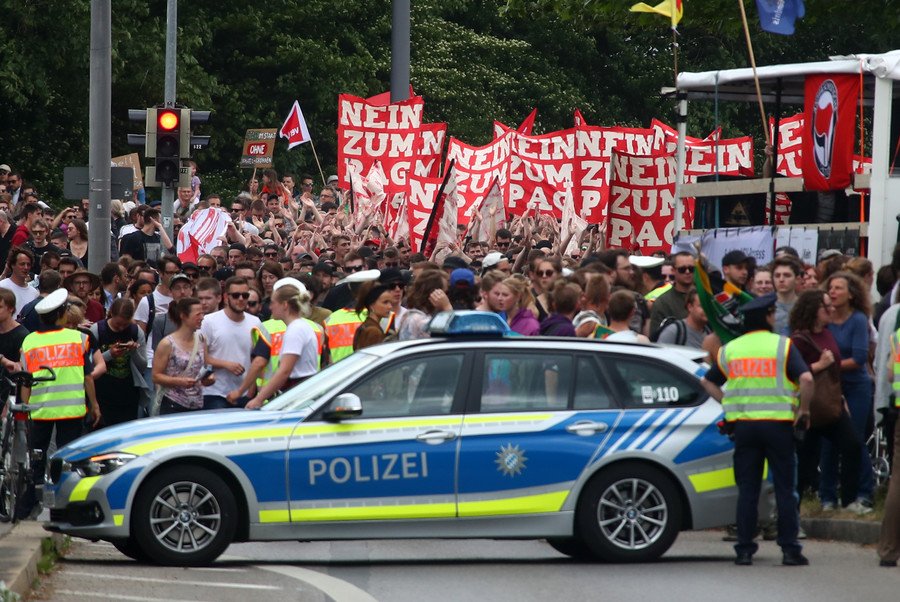30,000 protest as German police granted powers to open mail under new laws

Thousands of people have gathered in the center of Munich to protest against the introduction of sweeping new surveillance powers, including the opening of mail, for German police.
Police now estimate that 30,000 people have turned out for the protest – a figure far in excess of the 7,000 expected by event organizers. Emergency services are on hand to offer water to protesters stuck in the stationary march, according to police.
READ MORE: Angela Merkel’s longevity masks the disintegration of Germany’s political center
Plans for a pre-rally speech at Marienplatz, the city’s central square and transport hub, were ditched due to overcrowding in the square, according to Munich-based tabloid TZ. There have also been reports of overcrowding at nearby Odeonsplatz and traffic congestion around the route of the march.
Footage of the rally shows a crowded central square. Due to the high number of protesters, Munich police had taken to Twitter to urge new arrivals to go to Odeonsplatz.
Some 65 organizations, including opposition parties Greens, SPD and FDP, oppose the planned Police Task Force Act (PAG). The legislation would allow authorities to open letters, survey apartments as well as scan email and telephone conversations.

The new law is intended to give investigators more powers to search through citizens’ private correspondence in cases where danger is considered “imminent.” However, critics have warned that the term is too vague and is open to manipulation by police looking to gain spying powers in cases that do not warrant their use.
Bavaria's ruling CSU party has come in for criticism from opposition parties over its increased emphasis on security. "The surveillance mania of the CSU endangers our liberties," said Green politician Katharina Schulze in the state parliament, according to Munich newspaper Abend Zeitung.

Under the law, police will also be allowed to place a person under “preventative detention” for renewable periods of up to three months without trial. It’s considered the toughest police law introduced in Germany since the end of World War II, according to Deutsche Welle. The law is set to be approved by the state parliament on May 15.
READ MORE: Osama Bin Laden's 'bodyguard' living on benefits in Germany
Germany's association of football fans, Fanszenen Deutschland, has already complained about the law’s potential impact. "Almost all of us are affected by the new law in Bavaria," the association said in a statement. "When we travel to away games in Bavaria, police forces are already more aggressive than in other states. We ask ourselves, how will it be when they'll have even more power?"














